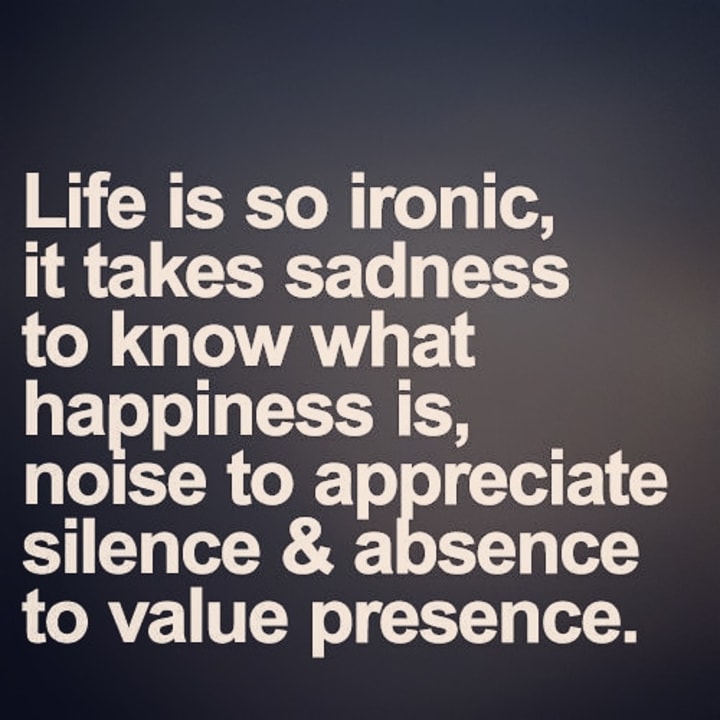Ultimate Red Flags of a Broken Relationship
A rollercoaster relationship will have tons of clear and apparent missed red flags from the very beginning.

Amongst the people in our lives that can have a huge impact on us, there is none more extreme than the toxic narcissist.
How to Spot a Manipulator
What is a manipulator?
Defined as a person who controls people to their own advantage, often unfairly or dishonestly, a well calcutated, vindictive, well thought out liar.
They are extremely skillful and undetectable when it comes to scheming. They have a way with words and somehow have you believing everything they say and you may often know something is not quite right but quickly push that thought aside.
This person is very much the spitting image of a textbook narcissist.
Any relationship with a Narcissistic person will wreak havoc on anyone their involved with whether its physical or platonic.
They will outright feast on the others energy as well as every fiber of your being without your knowledge of what's actually going on.
They literally feed off other people's positive energy flow. They are also commonly known as energy vampires.
So expect your energy to be constantly drained when you're around them to the point where sleep doesn't won't even cure your tiredness.
Some are so skilled at their manipulative tactics that sometimes you don't even realize that you're in a toxic relationship until you get out.
When you start to question your own sanity and second guess your self worth, alienate friends and family who actually care about you and your well being...it's definitely a sign that something is off and it's more often than not time to go!
You will notice this when you see what family members and close friends meant when they said you've changed.
Although you may have denied it repeatedly, you do not like the person you have slowly morphed into!
It's very important to realize that both parties involved are broken which will be explained further in great detail as well as how to reverse it and live your best life.

Narcissistic people are headstrong!
Narcissists can be very dangerous people! They use other people against you looking for sympathy votes.
They are always off one minute and on the next. Often times they have a habit of breaking up with their significant other frequently and with no warning sometimes.
- No matter what they have done to cause the split they maintain a role of innocence.
- In their eyes you're the one always wrong and they feel that no one can stop them!
- They don't want anyone to have you, even of they don't and will go beyond measures to get you back until you give in.
- Even if you leave them they will contact you and try to make your life miserable.
- They bring down your self esteem and make you feel very low about yourself and lessen your self worth until there's nothing left.
No matter how convincing they may seem, you find a way to forgive them.
Narcissists can be extremely annoying because of their self-centeredness. They are simply more focused on themselves, to the point where it can cross over into an actual personality disorder.
Either way it goes, narcissists are known for being rather difficult to be with and the relationship will generally be far from sane or healthy.
So, if you are one who finds that you are truly coping with one it might be time to reevaluate and make some hard decisions for the relationship.
By knowing their tactics and how their mind operates, gives you an advantage therefore you can counteract the negative effects of their behavior in order to better protect yourself.
Common Relationship Red Flags
Heres a list of some narcissistic traits you're bound to see when dating a narcissist/sociopath.
- The relationship will feel like a never ending rollercoaster ride.
- They can be hot or cold at any given time and that changes consistently.
- Any arguments that arise will be reversed and the blame will always be put on you.
- You will lose friends and family because they have lead you to push them away.
- Your tolerance level for BS and lies will increase.
- Your self esteem level is beyond low and you see yourself different than you used to.
- They apologize for cheating, lies, abuse, calling you out tour name and repeat it.
- They disappear often and convince you they made a mistake then do it again.
- They're obsessive and manipulative.
- They disappear for days, weeks or months and somehow get back in. your good graces only to tell you how it was all your fault.
- They are controlling and want things their way or no way at all.
- They are always insensitive to your feelings as if they are not valid.
- They are good at playing the victim role.
- Most if not all of your friends or family do not care for the narcissist if you even told them about your relationship. (A tendency to hide the truth to make them appear better to others only accentuating the good parts of them.)

How low self worth develops before adulthood
Have you have ever asked yourself: "Do I have low self esteem?", there's nothing to fear.
Research has found that people with low self worth tend to treat themselves badly but not other people.
People with genuinely low self-esteem have low self worth. This creates a poor image of self and little or no confidence.
Child trauma and abuse are the catalysts that increases the likelihood of low self worth.
There are many other forms of abuse that can shift ones overall mentality and certainly having a history of being heavily criticized by an authority figure or being unfavorably compared to others can lead to low self worth ("why can't you be more like your sisterer or you're just like your no good father!").
Often times it is ones past experience of abuse that may lead to post traumatic stress disorder which builds an image of "damage" and low self worth.
Once traumatic memories are dealt with effectively, the mind becomes clearer to form an accurate, healthier, sense of worth as well as the ability to make the most suitable choices for the future.

Adopted Traits You Possess
For some who have acquired these traits they may have arrived before you met the narcissist and the rest may develop after your relationship. Of course, it may vary from person to person.
Social anxiety/ withdrawal
Eating disorders
Inability to accept compliments
Anxiety and emotional turmoil
Lack of social skills and self confidence.
Unexpected mood swings
Depression, anxiety and/or bouts of sadness
Accentuating the negative
An inability to see the good in yourself
Reluctance to take on challenges
Exaggerated concern over what other people think of you
Low confidence levels
Self neglect, not taking care of yourself like you used to
Expecting little out of life for yourself
Developed anxiety/ panic attacks
Treating other people great better than you treat yourself
Unwillingness to trust your own opinion/ideas
Reluctance to put yourself first or anywhere.
So what is likely to cause one to have lowered self esteem?
People who have suffered from traumatic experiences, strict parenting, were abused as children (physical beating or sexual abuse) are more likely to suffer from inadequate low self esteem as adults.
We unconciously learned to view ourselves as having little value or see ourselves as an object to be used.
By previously receiving constant criticism and negativity as a result, many grow up with the belief that they are a certain type of way created a false self belief and it tends to be far from the truth.
This is the very thing that creates the mindset that births eating dis-orders and other kinds of anxiety issues.

How To Take Your Power Back
When a person finally begins to question any former conditioning or brainwashing they then make way for a healthier and more accurate sense of self to emerge.
When dealing with any type of abuse the one being abuse must come to terms with what has been consented to whether it was willing or not in order to grow from the experience and move forward.
Acceptance is the first step to recovery. Once you've done this you will be able to take the necessary steps to take action.
Practice these things every week!
• Put yourself first
•. Listen to an uplifting song
• Excercise, don't just say it, actually do it
• Do things that make u happy
• Be around family and friends that have your best interest
• Practice saying "No" to others
• Don't behave like you're a doormat
• Smile a little bit more
•. Eat healthier, less junk, cut out soda
•. Watch less t.v.,
• Turn your phone off after a certain time
• Avoid being a social media zombie (late/long hours)
• Do something nice for yourself
• Try something new, step out of your comfort zone
• Go somewhere in your city where you've never been
• Learn to date the opposite of your ex (Stay single for at least six months for self introspection)
• WORK ON YOURSELF, IT'S THE BEST THING YOU CAN DO FOR YOUR GROWTH!
About the Creator
Silena Le Beau
She expresses her gift of writing through each piece. She studied writing in college and has been inspiring people for 20 years. She gives back to the community & enriches them with enlightenment. Philanthropist, Empath and Nature lover.






Comments
There are no comments for this story
Be the first to respond and start the conversation.